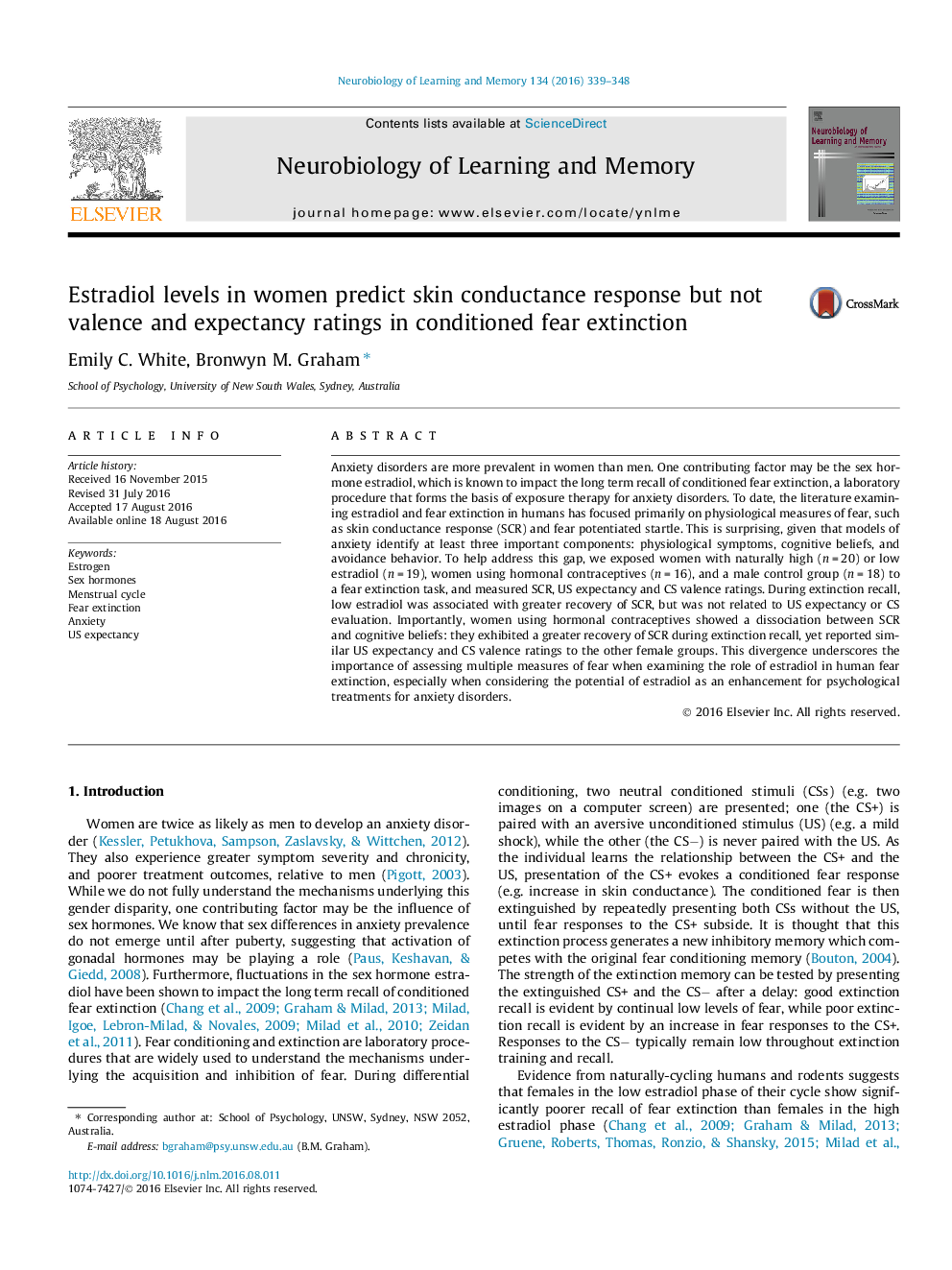| Article ID | Journal | Published Year | Pages | File Type |
|---|---|---|---|---|
| 5043277 | Neurobiology of Learning and Memory | 2016 | 10 Pages |
â¢Women with varying estradiol levels and men underwent a fear extinction procedure.â¢SCR was measured in addition to US expectancy and valence ratings.â¢Women using contraceptives showed a dissociation between SCR and subjective ratings.â¢Multiple measures should be considered when assessing estradiol and fear extinction.
Anxiety disorders are more prevalent in women than men. One contributing factor may be the sex hormone estradiol, which is known to impact the long term recall of conditioned fear extinction, a laboratory procedure that forms the basis of exposure therapy for anxiety disorders. To date, the literature examining estradiol and fear extinction in humans has focused primarily on physiological measures of fear, such as skin conductance response (SCR) and fear potentiated startle. This is surprising, given that models of anxiety identify at least three important components: physiological symptoms, cognitive beliefs, and avoidance behavior. To help address this gap, we exposed women with naturally high (n = 20) or low estradiol (n = 19), women using hormonal contraceptives (n = 16), and a male control group (n = 18) to a fear extinction task, and measured SCR, US expectancy and CS valence ratings. During extinction recall, low estradiol was associated with greater recovery of SCR, but was not related to US expectancy or CS evaluation. Importantly, women using hormonal contraceptives showed a dissociation between SCR and cognitive beliefs: they exhibited a greater recovery of SCR during extinction recall, yet reported similar US expectancy and CS valence ratings to the other female groups. This divergence underscores the importance of assessing multiple measures of fear when examining the role of estradiol in human fear extinction, especially when considering the potential of estradiol as an enhancement for psychological treatments for anxiety disorders.
